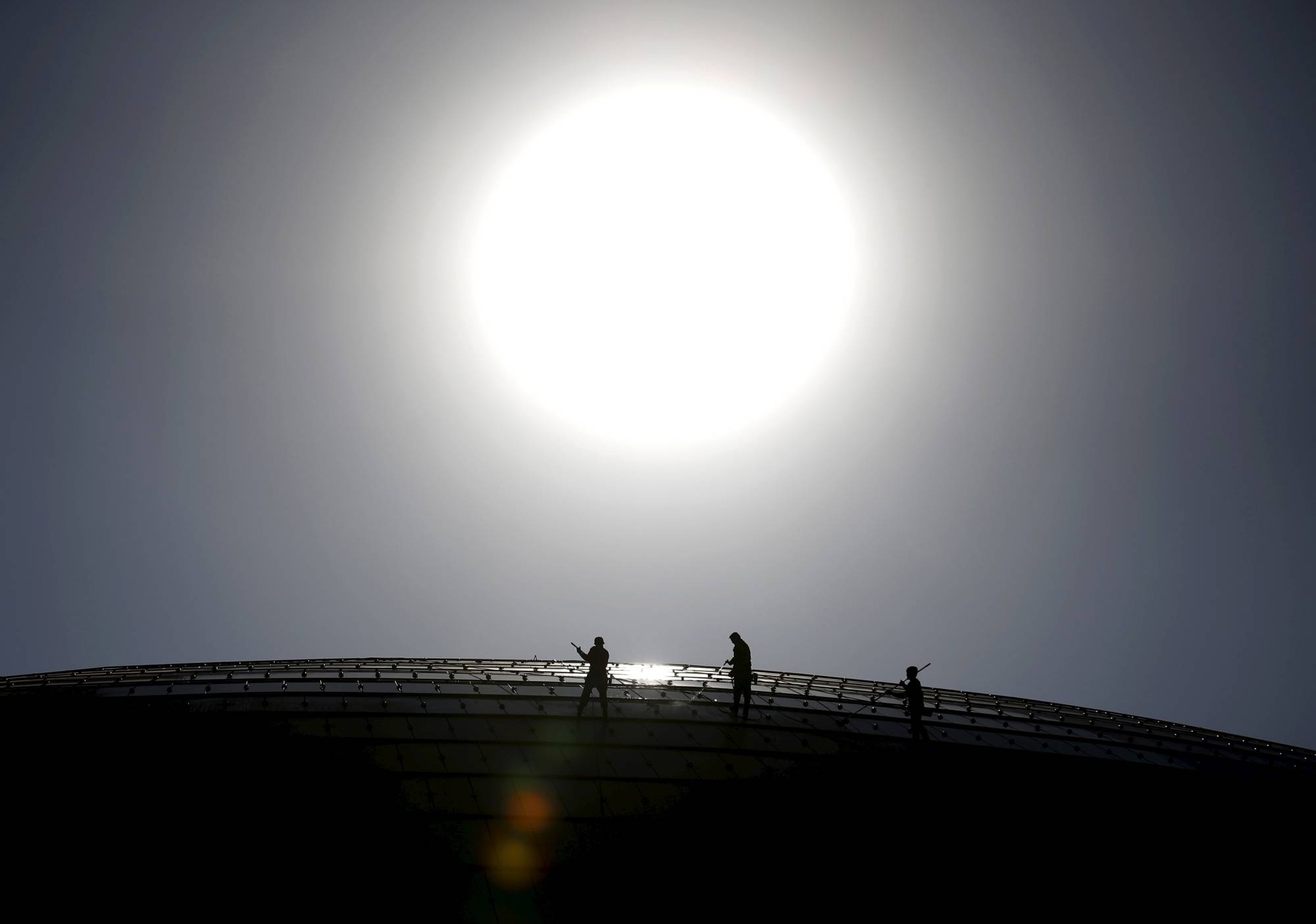Stepping into a "minefield" about how to slow global warming, scientists in developing nations have won new funds to study whether dimming sunshine by mimicking volcanic eruptions can be a sufficiently safe way to temporarily cool a hotter planet.
Research into "solar geoengineering," perhaps using planes or balloons to spray sun-reflecting sulphur into the stratosphere, has made scant progress despite alarm over rising temperatures and a sluggish global shift from fossil fuels to renewable energy.
Trying to build momentum, the Degrees Initiative, a UK-based nongovernment group, announced on Wednesday $900,000 in new solar geoengineering funding for researchers in 15 countries including Nigeria, Chile and India.



